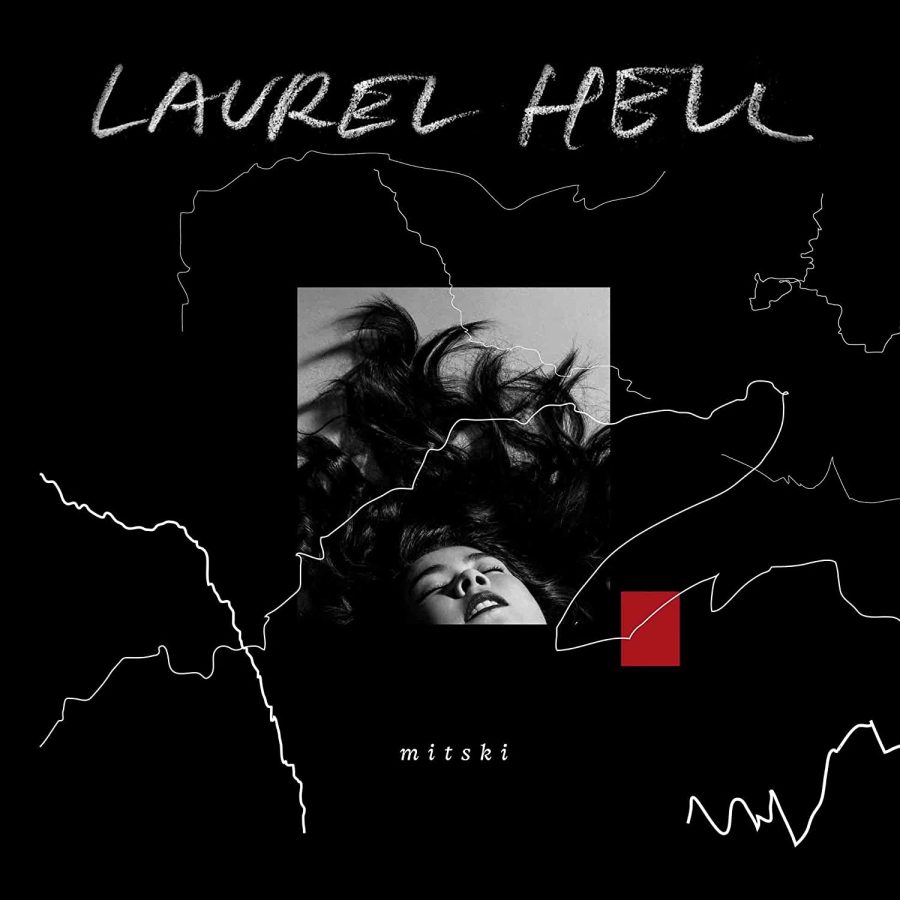Mitski transitions from indie rock to pop for possible last album
Photo via Dead Oceans record label
Many quickly critique this album because Mitski was contractually obligated to create another album. Her lyrical genius and the instrumental aspects destroy this claim.
February 7, 2022
With the prevalence of pop love songs oversaturating the music industry, Mitski’s Laurel Hell takes a new approach on the classic formula. By incorporating her signature voice with pop elements, the album is set apart from anything else.
After a four-year break and declaring that she would not release new music in the future, Mitski uses Laurel Hell as her vessel to express the complex aspects of love.
“I needed love songs about real relationships that are not power struggles to be won or lost – songs that could help me forgive both others and myself,” Mitski said.
The album perfectly depicts the gray area she strives to describe. A new, pop sound sets it apart from her previous indie-rock work.
The album starts with “Valentine, Texas,” which starts out mellow, mirroring songs from her third studio album, Bury Me At Makeout Creek. It then shifts once an electric keyboard appears. The sudden shift makes an impression on listeners and makes it clear that she is setting herself apart from the indie-rock artist label.
Mitski further explores the idea of setting herself apart in the second song, “Working for the Knife.” She sings “I used to think I would tell stories, but nobody cared for the stories I had.”
Mitski touches on the exploitation many artists deal with when entering the music industry. The industry forces musicians to be one thing and turn to shallow songs with little to now meaning to stay relevant.
The album then changes to focus on the inner-workings of love and all its continuity. Though she keeps her soft spoken yet powerful voice, she incorporates electric sounds found in typical pop songs. The sound is reminiscent of songs found on her 2018 record, Be the Cowboy.
Mitski has always been able to touch listeners’ hearts with her lyrics within a short amount of time. She offers a master class as to how to relate to listeners and make them cry in under four minutes.
Many may believe touching songs need to be long to be successful. This idea is perpetuated through other lyrical geniuses, like Taylor Swift. Arguably, the lyrics present in Laurel Hell perfectly encapsulate her past relationships.
For example, in “Heat Lightning,” Mitski sings “There’s nothing I can do. Not much I can change. Can I give it up to you? Would that be okay,” showing her feelings of helplessness and asking her lover if it is okay to put some of her struggles onto them.
Sharing problems with a partner is one of the most important aspects of a relationship, yet is rarely touched on in love songs. Mitski goes on to touch more on the gray areas of relationships.
“There’s Nothing Left Here for You” and “Should’ve Been Me” come directly after one another and contrast each other in meaning. In “There’s Nothing Left Here for You,” she chastises her partner for showing interest in someone else and urges them to leave, saying “You could fly. it was your right.” While in “Should’ve Been Me,” she is resentful that she let her lover leave.
Many quickly critique this album because Mitski was contractually obligated to create another album. Her lyrical genius and the instrumental aspects destroy this claim.
Mitski continues to provide audiences with heart-wrenching, poetic music even with the genre change. Though it’s likely that she won’t be producing any more music, Mitski’s Laurel Hell is sure to become a classic for lovers of the genre.



